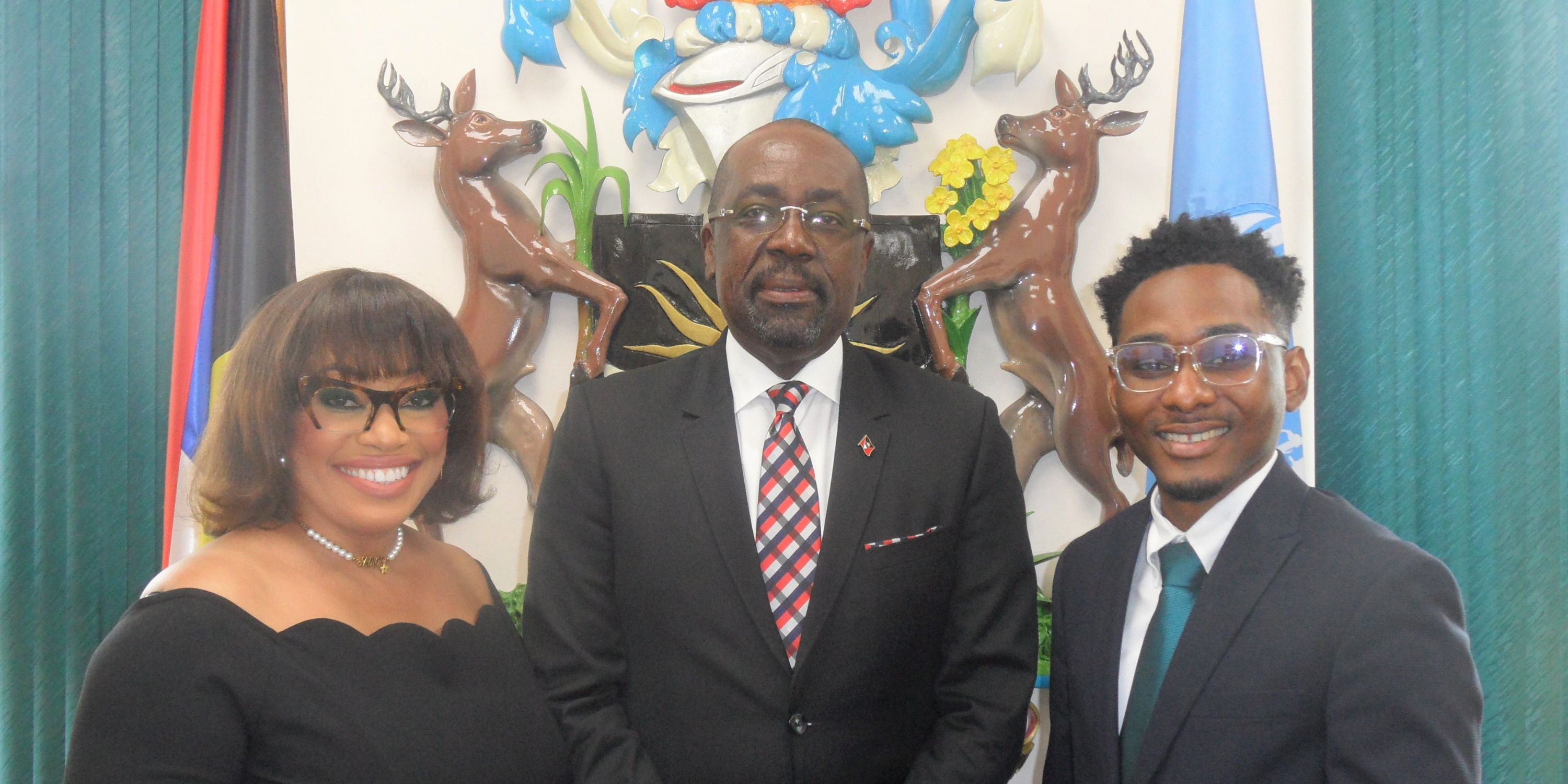The United Nations Welcome Antigua and Barbuda’s First Voluntary National Review
Office of the Prime Minister, Antigua and Barbuda
ST. JOHN’S, Antigua and Barbuda – Hailed by our development partners as one of the best reports emanating from the Caribbean in recent times, Antigua and Barbuda’s first-ever Voluntary National Review Report (VNR) was presented earlier today at the Ninth Session of the United Nations High-Level Political Forum (HLPF) on Sustainable Development under the theme “Build Forward Stronger”.
During the 2021 HLPF session, which was held virtually, Antigua and Barbuda’s presentation consisted of two parts: an introductory video and a statement. During the video, Antigua and Barbuda Director of International Trade, Ms. Joy-Marie King, enumerated the following key developmental objectives that leave no one behind:
Optimal generation of wealth;
- Enhanced social cohesion;
- Improved health of the natural environment;
- Sustained historical and cultural assets; and
- Enhanced citizen security.
Ms. King further asserted that “these developmental objectives have been framing the nation’s efforts towards the implementation of the sustainable development goals.” Underscoring the resilience of our people, the opportunity was also taken to reaffirm the country’s commitment towards the implementation of the goals.
In his address to the UN membership, the Honourable E.P. Chet Greene, Minister of Foreign Affairs, stated that “…the pandemic has…created a paradigm shift in the methodologies for implementing the United Nations Sustainable Development Goals. Despite these challenges, Antigua and Barbuda remain resolute in achieving the SDGs. This is because our nation-building efforts put people at the center of development.”
Minister Greene went on to update the HLPF about Antigua and Barbuda’s achievements in SDG implementation. He further informed that “…we have accomplished significant milestones that can be celebrated. Among them are: the establishment of the 4th landed campus of the University of the West Indies- Five Island Campus, where efforts are ongoing to model the University as a center of resilience for the region, retooling the labour force, responding to climate change, and advancing the academic and strategic development of the Blue Economy…a further intensification of social protection initiatives geared towards poverty and hunger alleviation…the construction of…affordable housing solutions for our people. There has been a significant investment made in the health infrastructure. We have had to accelerate the construction of several community clinics and an Infectious Disease Center, as an urgent response to the COVID-19 pandemic…”
In preparation for the country’s VNR under the auspices of the Economic Commission for Latin America and the Caribbean, the International Trade Unit within the Ministry of Foreign Affairs conducted in-depth consultations with a diverse range of stakeholders, including government ministries, civil society, private sector, and youth to obtain inputs. Recognizing the need to break down silos, the consultations provided a starting point for multi-stakeholder action to accelerate SDG progress.
The VNR seeks to support Antigua and Barbuda’s transition to a greener, more resilient, and inclusive society, leaving no one behind. Advancing SDG implementation can serve to complement the country’s post-Covid-19 recovery and help ensure a legacy for future generations.
Antigua and Barbuda’s VNR team comprises Honourable E. P Chet Greene, Minister of Foreign Affairs; Ms. Joy-Marie King, Director of International Trade; Ms. Zeina Hechme, Senior Foreign Service Officer; Mr. Javier Spencer, Foreign Service Officer; and consultants, Mr. Sonalli Andrews of Redninko Graphics and Ms. Elizabeth Emanuel.
A citizen’s version of the VNR report will be released shortly in addition to a launch of an online public advocacy initiative designed by Sonalli Andrews.
Established by the UN in 2015, the SDGs are seventeen (17) interconnected ‘global goals’ to be achieved by 2030. The SDGs cover social, economic, and environmental aspects of sustainable development.
This year, forty-three (43) countries are expected to present a VNR.





